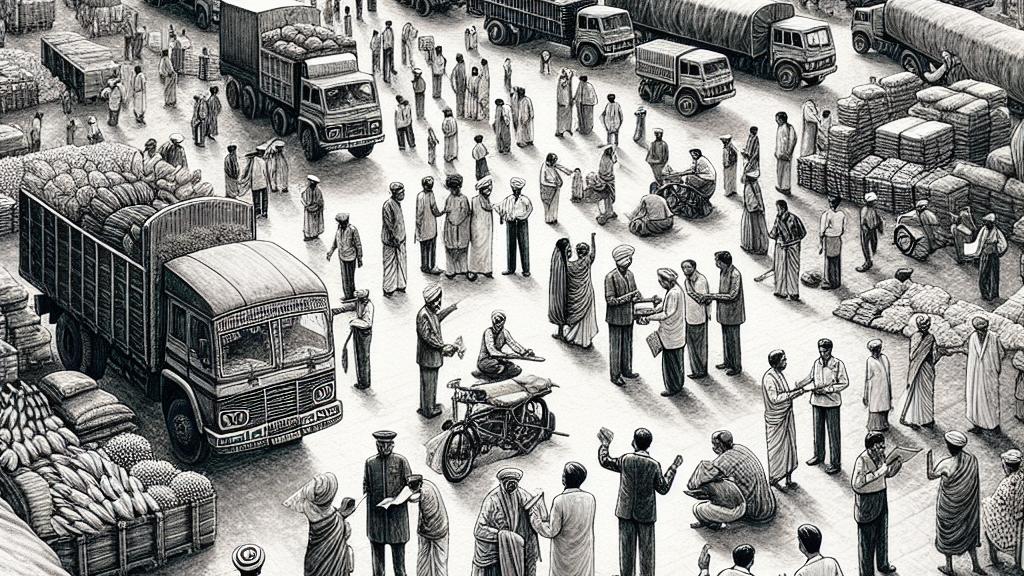Crossing Borders: The Revival of India-Bangladesh Trade Amidst Political Turmoil!
Overview
- Trade between India and Bangladesh resumed at Petrapole land port after a brief halt due to political instability.
- Sheikh Hasina's government faced protests leading to heightened security measures along the border.
- Bilateral trade remains essential for both nations, despite recent declines in export volumes.

Resumption of Trade at Petrapole
On August 8, 2024, trade operations at Petrapole land port in West Bengal, India resumed after a brief suspension due to the political turbulence in Bangladesh. The trading halt began on August 5 when Prime Minister Sheikh Hasina's government was met with violent protests, leading to its downfall. Petrapole is particularly significant as it serves as the busiest land trading point between India and Bangladesh, handling a diverse array of goods, especially perishables like fruits and vegetables. In response to the crisis, officials engaged in discussions aimed at resolving trade disputes, ultimately paving the way for the resumption of operations that allowed local traders to once again engage in cross-border commerce. This was a crucial step in revitalizing the marketplace after a period of uncertainty and economic stagnation.
Political Context and Enhanced Security Measures
The political upheaval in Bangladesh necessitated comprehensive security measures along the Indo-Bangladesh border, a decision made to maintain order and protect trade activities. Following the protests, which led to Sheikh Hasina's ouster, the Indian government increased vigilance and border patrols to prevent any disruptions that could arise from ongoing instability. The Director General of the Border Security Force (BSF) visited the Petrapole area to assess the security situation, highlighting the importance placed on safeguarding trade routes amidst tensions. Additionally, the reinforcement of security measures reflects both nations’ commitment to ensure that despite the political volatility, economic ties remain intact. The ability to navigate these challenges will be pivotal in maintaining healthy diplomatic and economic relations, proving the resilience of their partnership in difficult times.
Economic Implications and Future Directions
The resumption of trade at Petrapole is critical for both nations as they strive to recover from recent economic setbacks. In 2023-24, India’s exports to Bangladesh dipped from $12.21 billion to $11 billion, while Bangladeshi exports to India are primarily dominated by textile and garment sectors, which account for over half of their total shipments. Given these figures, there are pressing concerns regarding future trade dynamics. To mitigate currency-related risks, both nations are exploring agreements to settle trade in local currencies, which can provide stability and foster economic growth. As they look ahead, enhancing cooperation in trade policies and resolving outstanding issues will be essential to bolster their economic ties, ultimately ensuring the mutual prosperity of both countries despite a complex regional backdrop.

Loading...